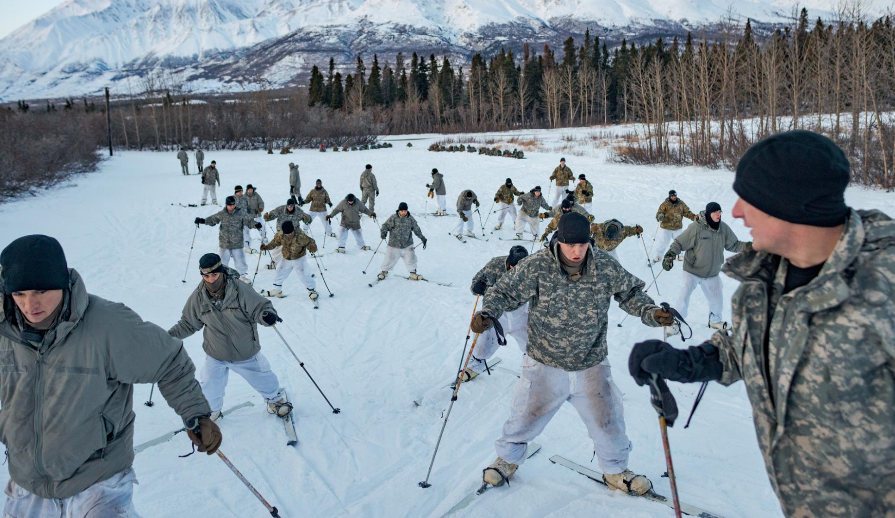Days began and ended at the fishnets. The haul of iqalupik, arctic char, was so plentiful that soon each tent was flanked by a small stand of stiff pink bodies, stuck tails first into deep drifts of snow. When we got hungry, we simply slipped an arm out the door and snagged a fish. Sometimes we cut it up and made soup. More often we ate it raw, slicing the char into our mouths. Frozen sushi, Marvin called it, fresh and cold, almost tasteless, with a note of steel from the knife blade.
每一天都以撒网开始和作结。打上来的鱼很多,很快每个帐篷都摆上了一排坚硬的粉色的躯体,尾巴埋进雪里。饿的时候我们只要把手伸出帐篷抓条鱼进来就行。有时候我们会把鱼切块炖汤。更多时候就是生吃,把红点鲑切成一片片的放进嘴里,马尔文管这个叫做冻寿司,很新鲜又冰凉,几乎无味,只有刀刃上一点钢铁的味道。

Beyond the nets, our hours vanished into a well of small tasks. In the day's few hours of weak sunlight, there were stoves to tend, ice to melt for drinking water, tents to relocate when the ice below them turned to slush. Snowmobiles regularly broke down in the unforgiving cold. At one point, a mother polar bear appeared near camp with two cubs, which made the act of heading off alone to relieve oneself -- already dismal enough in the puckering cold -- an even uglier prospect.
除了撒网,我们的时间都花在很多小事上。在白天几小时的微弱光线里,我们要照看好灶,化冰做饮用水,冰开始化的时候还要给帐篷换位置。在这种严寒的天气里,雪地车经常坏。有一次,一只北极熊母亲带了两只幼崽出现在帐篷附近,这让独自一人去大小解--在这种天气已经够可怕了--都变得危险。
During the mission I shared a tent with Marvin Atqittuq and his father, Jacob, who at 74 was one of Gjoa Haven's most celebrated hunters. Jacob Atqittuq had been born in an igloo and spoke only enough English to make occasional jokes. Over his lifetime he'd survived brutal winters and hungry bears, searing frostbite, boat accidents, even a season of famine that had killed many Inuit. Each morning he woke before us, and at the foot of the broad mattress we all shared, he cooked bannock, a sweet, doughy bread, and softly sang old church hymns in Inuktitut.
在这次任务中,我跟马尔文·阿提库和他的父亲雅各布共用一个帐篷,雅各布74岁时曾是约阿港最出名的猎手。雅各布·阿提库出生在一座爱斯基摩人的冰屋,他的英语水平只够他偶尔开开玩笑用。在他的一生中,他经历过严寒的冬天,饥饿的熊,刺骨的霜冻,船只事故,甚至是持续一整季的死了很多因纽特人的饥荒。每天早上他都醒的比我们早,他就在我们共用的宽大的床垫旁边做薄麦饼,那是一种甜甜的像面团一样的面包,然后温和的唱着因纽特人教堂里古老的颂歌。













